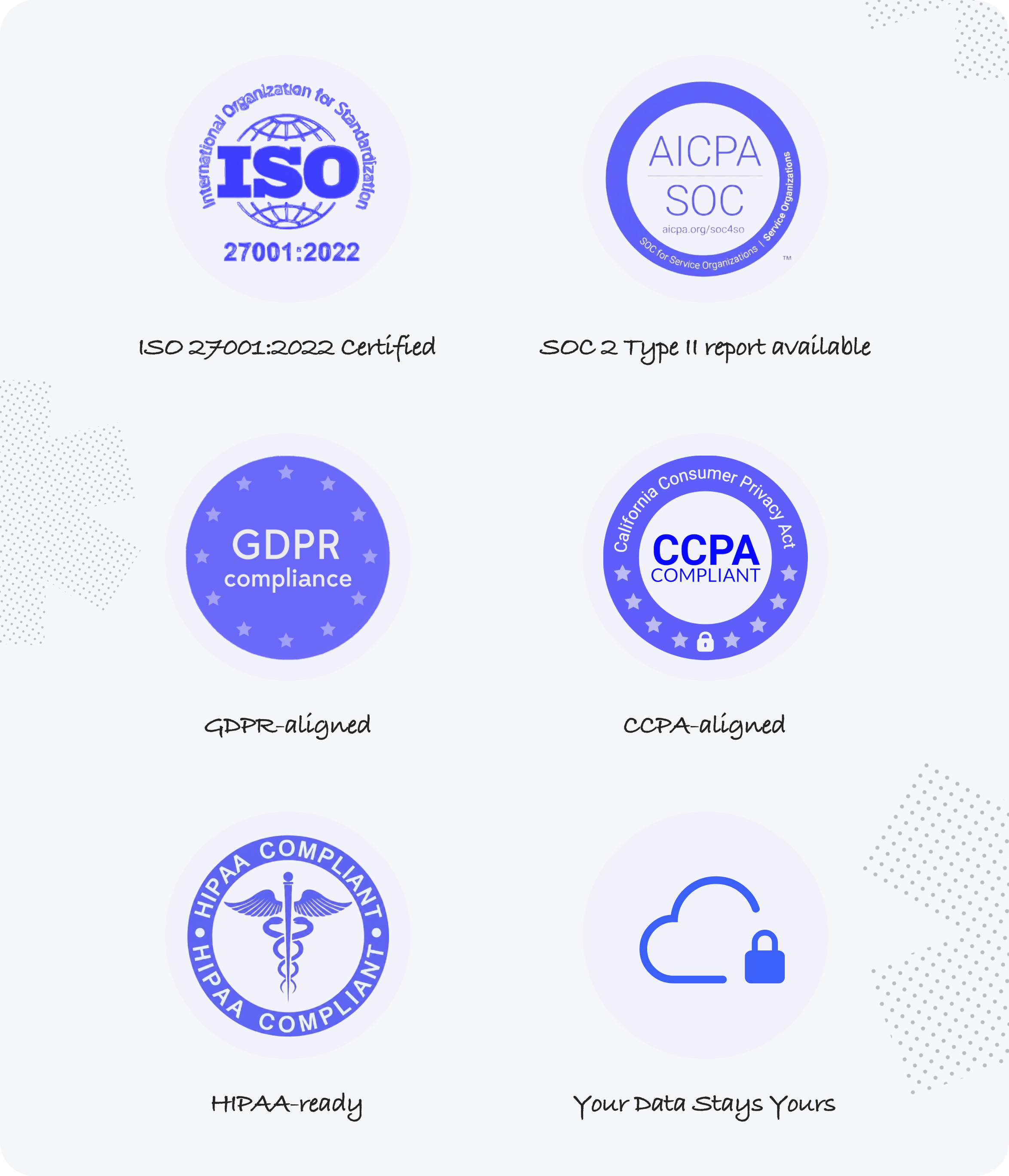Your Trusted AI Insights Companion
Turn raw conversations from interviews, video diaries, and open-ended surveys into clear, credible insights with AI built specifically for market research.

Everything You Need for Smarter Research
3 Reasons You’ll Love Enumerate
Built for researchers who care about nuance and ownership, and who value truly understanding people not just speeding through data.
99.5%
Accurate Insights
Insight You Can Stand Behind
AI that doesn't guess. With 99.5% accuracy, your analysis stays sharp, credible, and presentation-ready.
40+
Languages
Context, Not Just Translation
From tone to terminology, our multilingual AI keeps the human meaning intact across 40+ languages.
100%
Your Expertise
Your Judgment Leads
We don’t replace researchers. We enhance your perspective so every conclusion reflects your thinking, not just the algorithm’s.


Highly Accurate Transcriptions & Translations
Get 99.5%+ accuracy in minutes with AI trained on your industry, whether it's FMCG, Finance, Medicine, Tech, or more.
Our system works across 40+ languages, capturing jargon and nuances so you never miss the meaning.

Ask Questions and discover deeper insights
Turn raw data into dynamic conversations by asking direct questions across transcripts and video diaries our AI delivers instant, clear answers.
Uncover themes, spot trends, and refine strategy without the manual grind.

Open-End and Thematic Coding
Go beyond surface-level responses and uncover core themes in your open-ends. Our AI identifies key topics, sentiments, and brand mentions so you’re never left guessing.
Apply custom codes to refine insights and keep your analysis structured, actionable, and aligned with your goals.

Tailored AI Analysis & Support
Get deeper insights with AI fine-tuned to your industry delivering clear, actionable results without manual work.
Custom Analytics
AI models refined for your needs analyzing complex data and presenting insights your way.
White-Glove Support
From setup to insights, we guide you hands-on with training, troubleshooting, and expert help.
Go Further with These Smart Features
Reel Editor
Create video reels from participant clips, add captions, and highlight key moments. Perfect for sharing insights in a dynamic visual format.
Theme Library
Organize and reuse themes with grouped collections. Maintain consistency across projects and speed up analysis.
Intelligent Image Analysis
AI scans images for objects, patterns, and context. Get deeper insights from visual data not just words.
Third - Party Integration
Sync with your existing tools in real time for seamless data flow. Automated updates ensure insights stay current.
Effortless Panel Connections
Easily connect or switch panels without disrupting workflows. Keep your recruitment and research pipeline smooth.
Export to PowerPoint & Excel
Turn insights into presentations or spreadsheets in seconds. Share findings with teams or stakeholders, fast.

Security & Compliance
At every stage, our platform is built to protect your sensitive data and respect international privacy regulations.


Seamless Research Starts Here
Experience a seamless way to analyze qualitative data with our powerful platform, designed for researchers and built for accuracy. Start transforming insights today.



